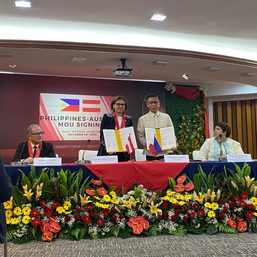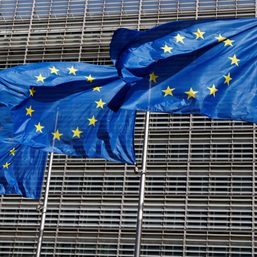SUMMARY
This is AI generated summarization, which may have errors. For context, always refer to the full article.
The dramatic collapse of German payment provider Wirecard fueled a political row in Austria on Monday, July 13, with former right-wing coalition partners trading accusations of links to key players in the scandal.
Once a darling of the fintech scene, Wirecard filed for insolvency in June after being forced to admit that 1.9 billion euros ($2.1 billion) missing from its accounts likely did not exist.
Both Wirecard’s former chief operating officer Jan Marsalek and its founder and former chief executive Markus Braun are Austrian.
In recent days reports have emerged about their connections to Vienna’s political and intelligence circles, in particular to the far-right Freedom Party (FPOe) and the center-right People’s Party (OeVP) of Chancellor Sebastian Kurz.
Novichok recipe
According to Austria’s Die Presse daily, Marsalek passed confidential information from Austria’s secret services and interior ministry to the FPOe in 2017.
The Financial Times has reported that Marsalek also had an association with individuals or networks linked to Russia’s military intelligence directorate, the GRU.
The FPOe has long been an advocate of closer ties with Moscow, and has a cooperation agreement with President Vladimir Putin’s United Russia party.
On Monday, the head of the OeVP’s parliamentary grouping, Gaby Schwarz, said her party had called for a meeting of Austria’s National Security Council, which advises the government.
The affair is an uncomfortable one for Austria, a neutral country which is not a member of NATO.
“This is about Austria’s security and neutrality,” Schwarz said, adding that she wanted the council to consider Marsalek’s alleged links to the FPOe and intelligence circles, “how intense the links were, who spread what secret information.”
Die Presse reported that “vigorous internal investigations are underway” at the interior ministry to ascertain how Marsalek gained access to information, with Austrian media talking of possible “moles.”
The Financial Times has reported Marsalek attempted to impress business associates by showing them documents containing the recipe for the nerve agent Novichok, used to poison Russian-born ex-double agent Sergei Skripal and his daughter in Britain in 2018.
He is also reported to have had internal documents from Organisation for the Prohibition of Chemical Weapons (OPCW) about its investigation into the poisoning.
According to Die Presse, Marsalek may have received the documents from Austrian sources.
Vienna had privileged access to documents relating to Skripal’s case because the spy swap which saw him arrive in the West took place in Austria in 2011, the daily reported.
Furthermore, Marsalek is suspected of trying to form a militia of some 15,000 men in Libya in 2018 under the guise of an aid project.
Here too there is an Austrian connection, with the defense ministry in Vienna confirming on Monday that conversations about a project in Libya with a “group of experts” took place over 2017 and 2018.
However, the ministry said that “there was no further interest from the team of…experts and no money was allocated.”
‘Intense links’
Also on Monday, Schwarz’s FPOe counterpart Christian Hafenecker called his own press conference, to call attention to “the intense links between the OeVP and the scandal-ridden firm Wirecard,” and Braun in particular.
Braun appeared alongside Kurz at an OeVP campaign event in 2017 and in the same year donated 70,000 euros ($79,500) to the party.
He was also a member of an OeVP-linked think tank.
Schwarz rejected the characterization of Braun as an “OeVP man” and pointed out he had also donated money to the liberal NEOS party.
Braun has turned himself in to police, and has since been released on bail, while an international arrest warrant has been issued for Marsalek, who remains at large.
Kurz presided over a coalition of the OeVP and FPOe that collapsed in May 2019 over the separate “Ibiza-gate” corruption scandal.
Since Ibiza-gate, the OeVP and FPOe have traded barbs on a variety of issues, most notably the Kurz administration’s handling of the novel coronavirus pandemic.
Following elections last year, Kurz and the OeVP returned to government, in a coalition with the Greens. – Rappler.com
Add a comment
How does this make you feel?

![[WATCH] Food Secrets: The Wiener Schnitzel –Austria’s national dish](https://www.rappler.com/tachyon/2023/10/food-secrets-wiener-schnitzel.jpg?resize=257%2C257&crop_strategy=attention)



There are no comments yet. Add your comment to start the conversation.